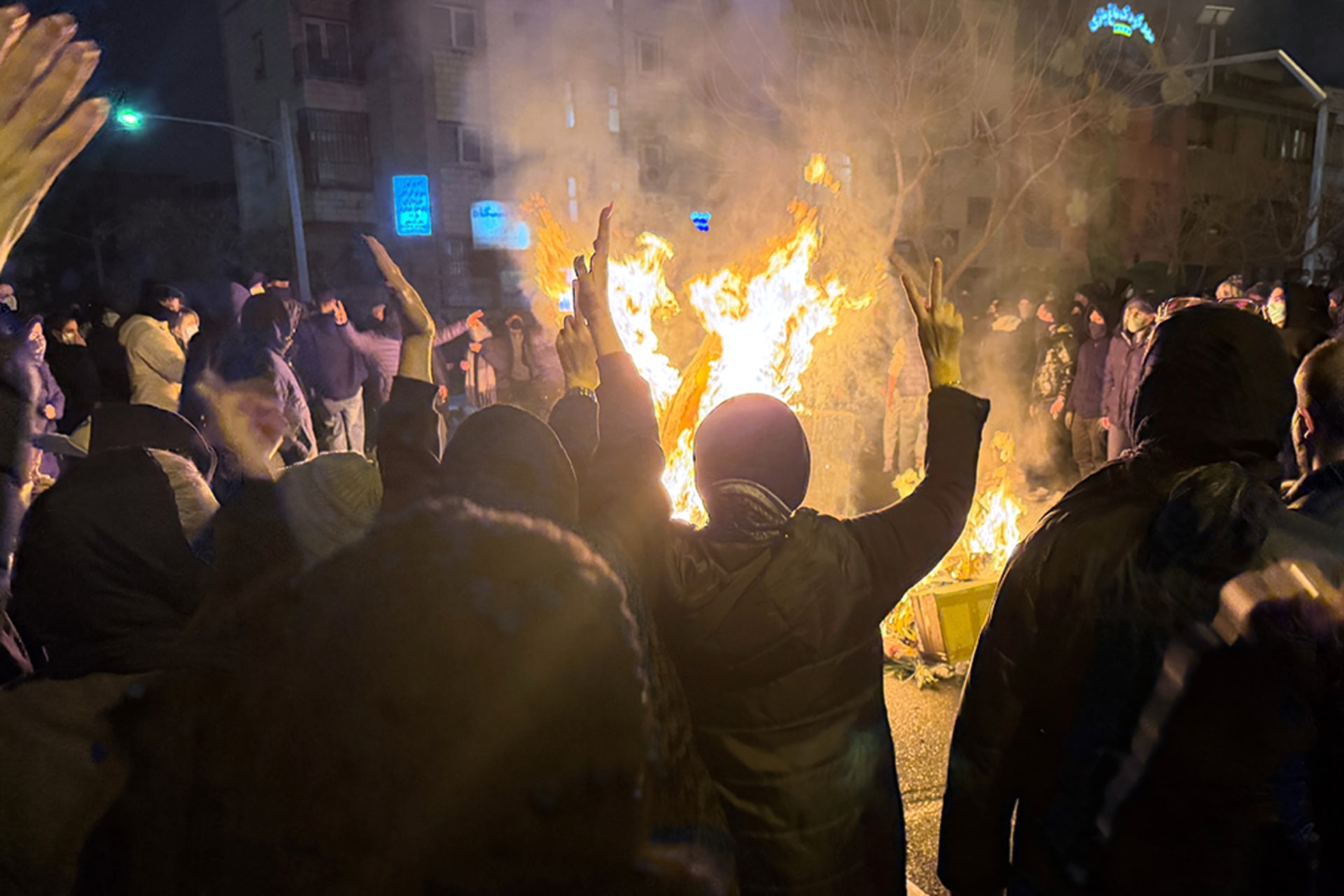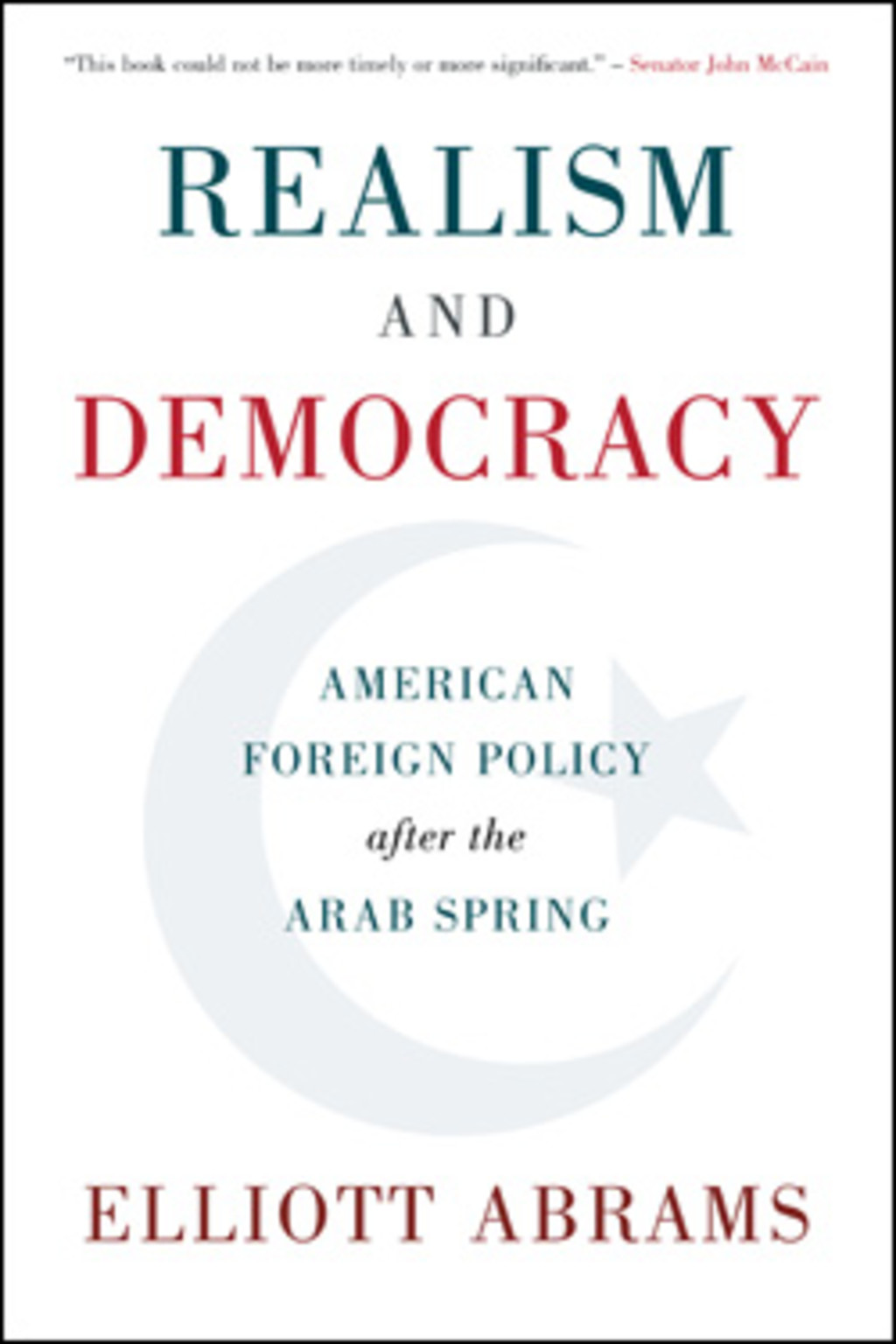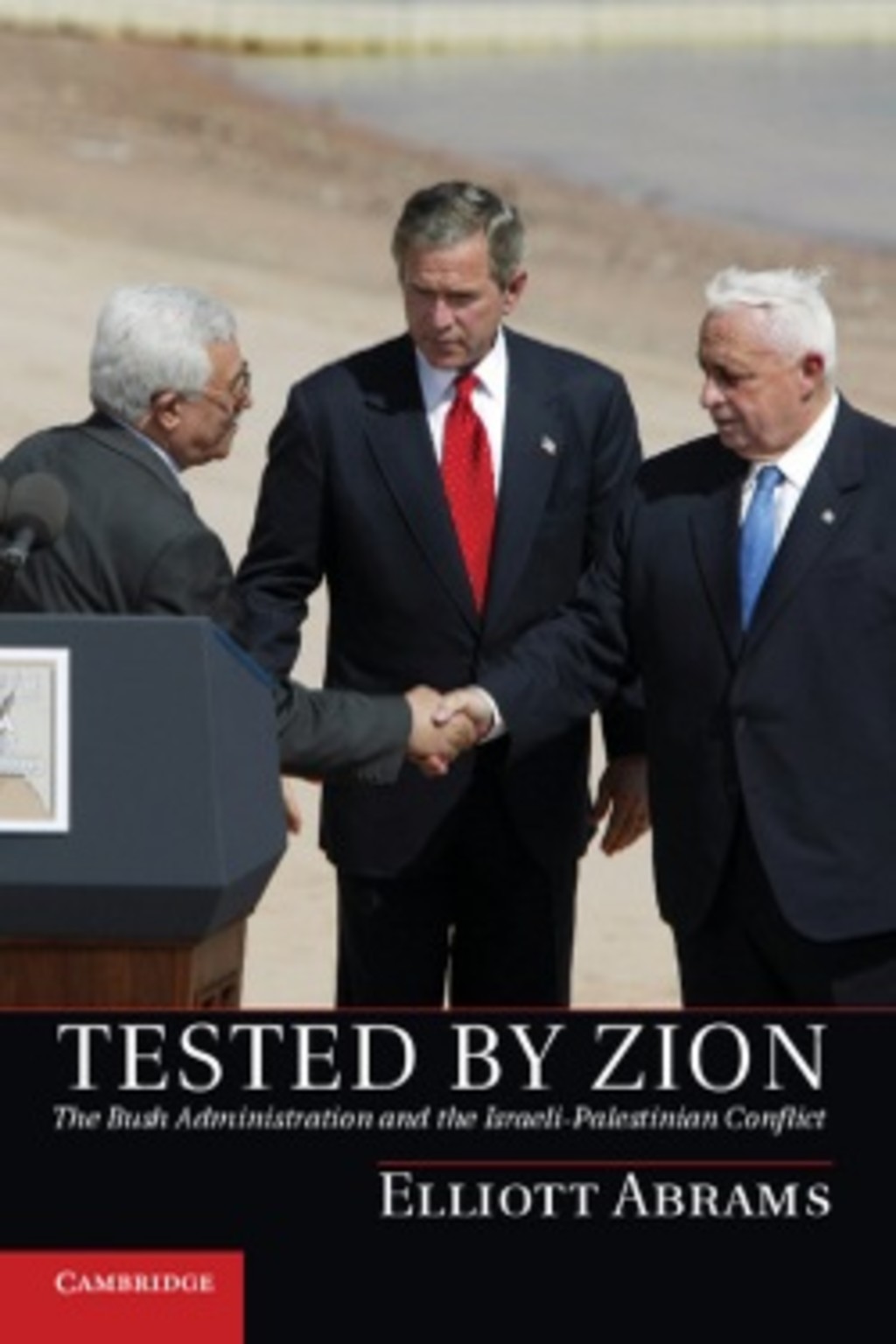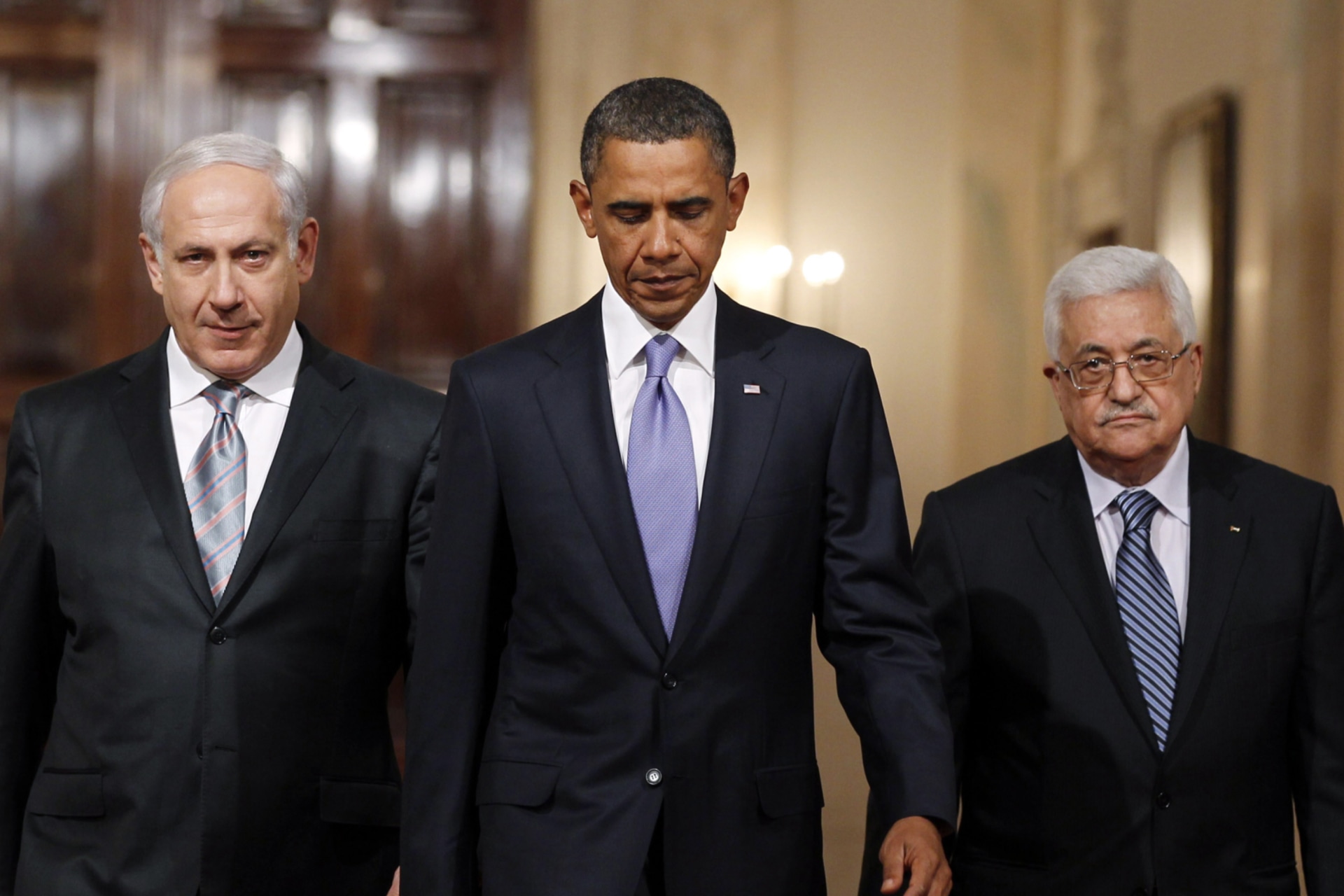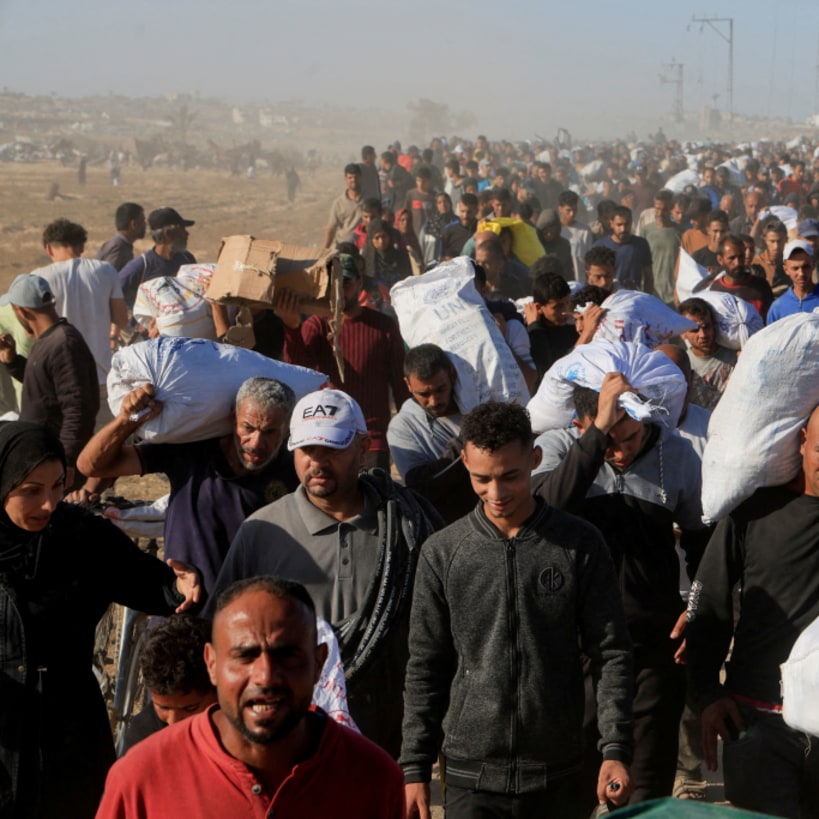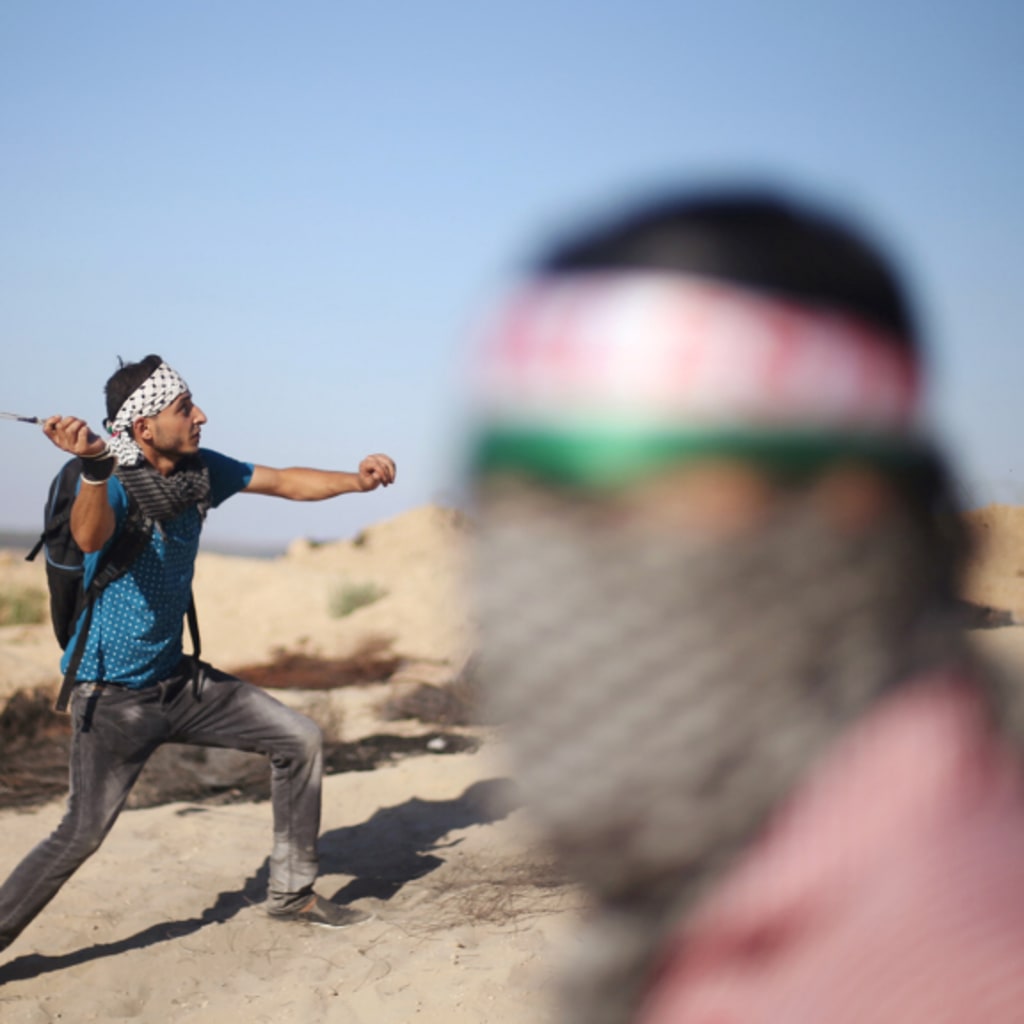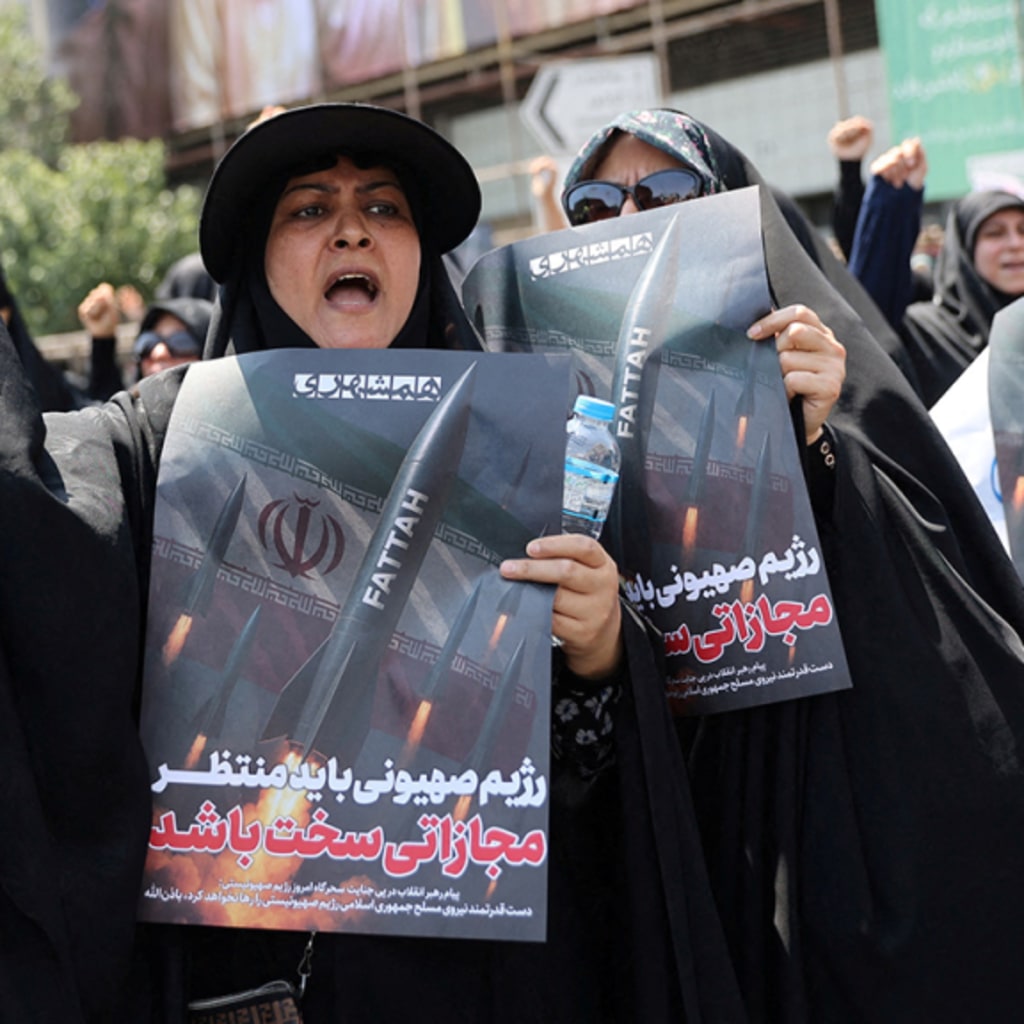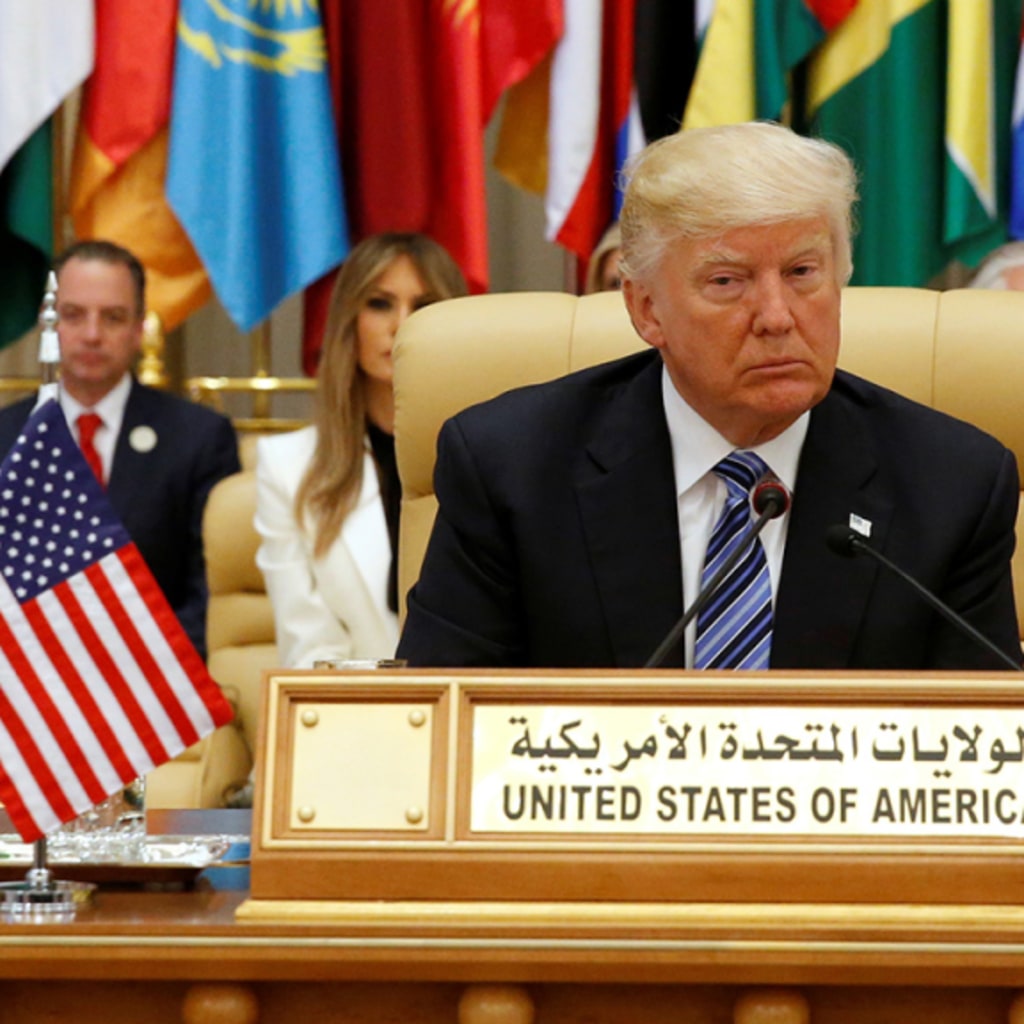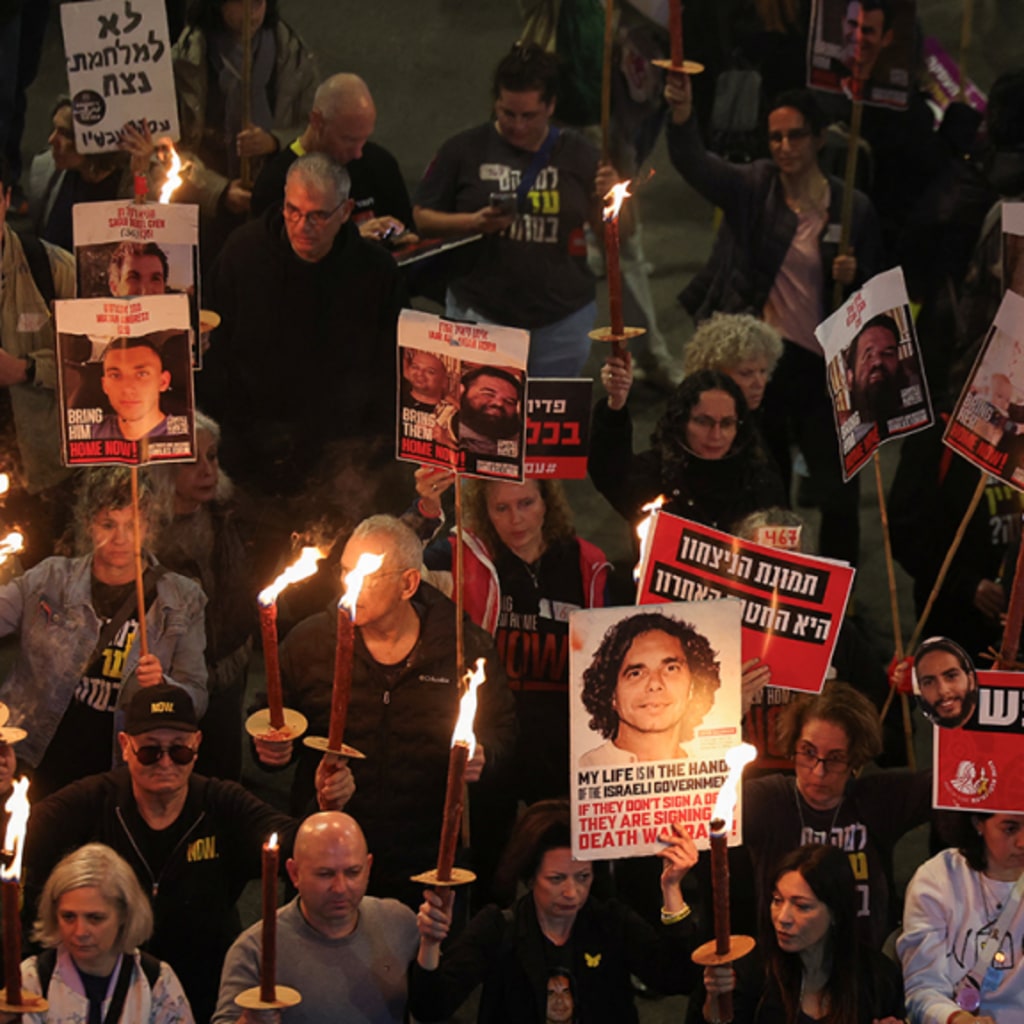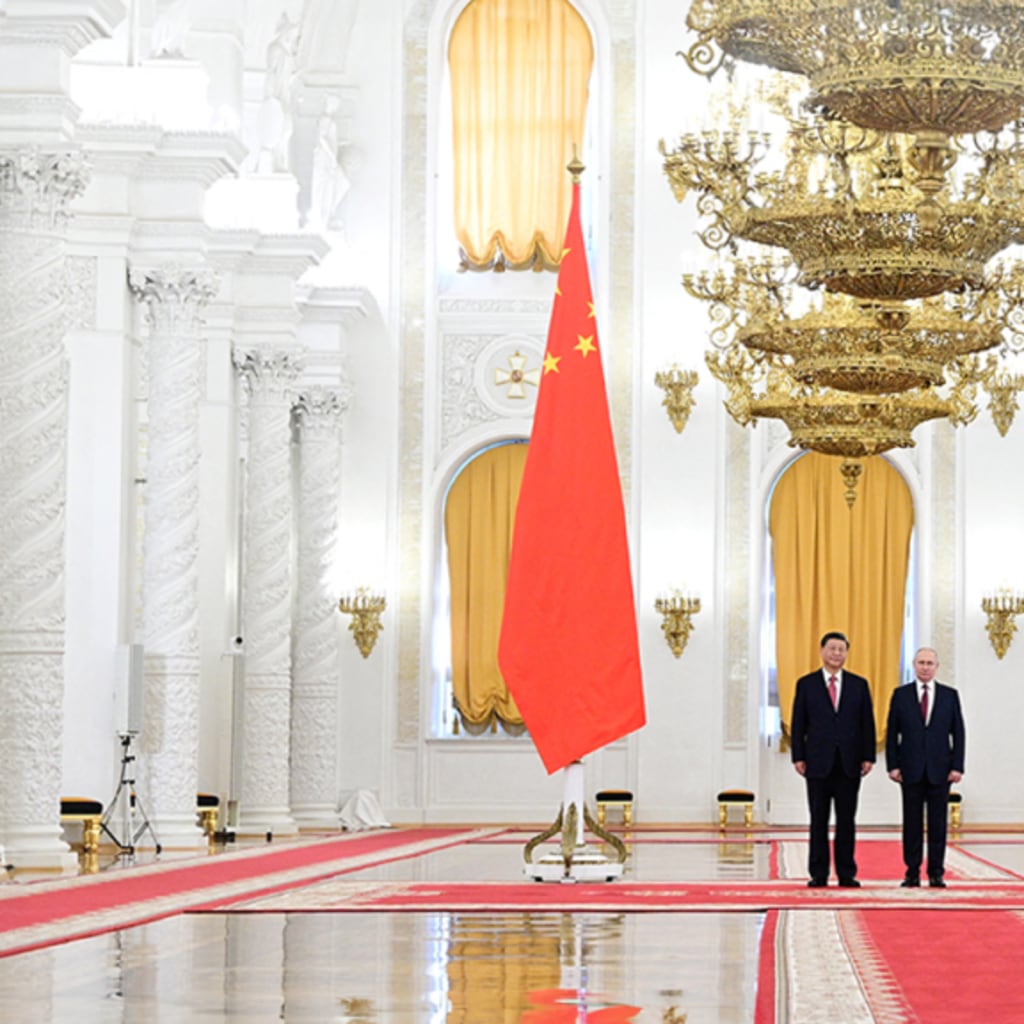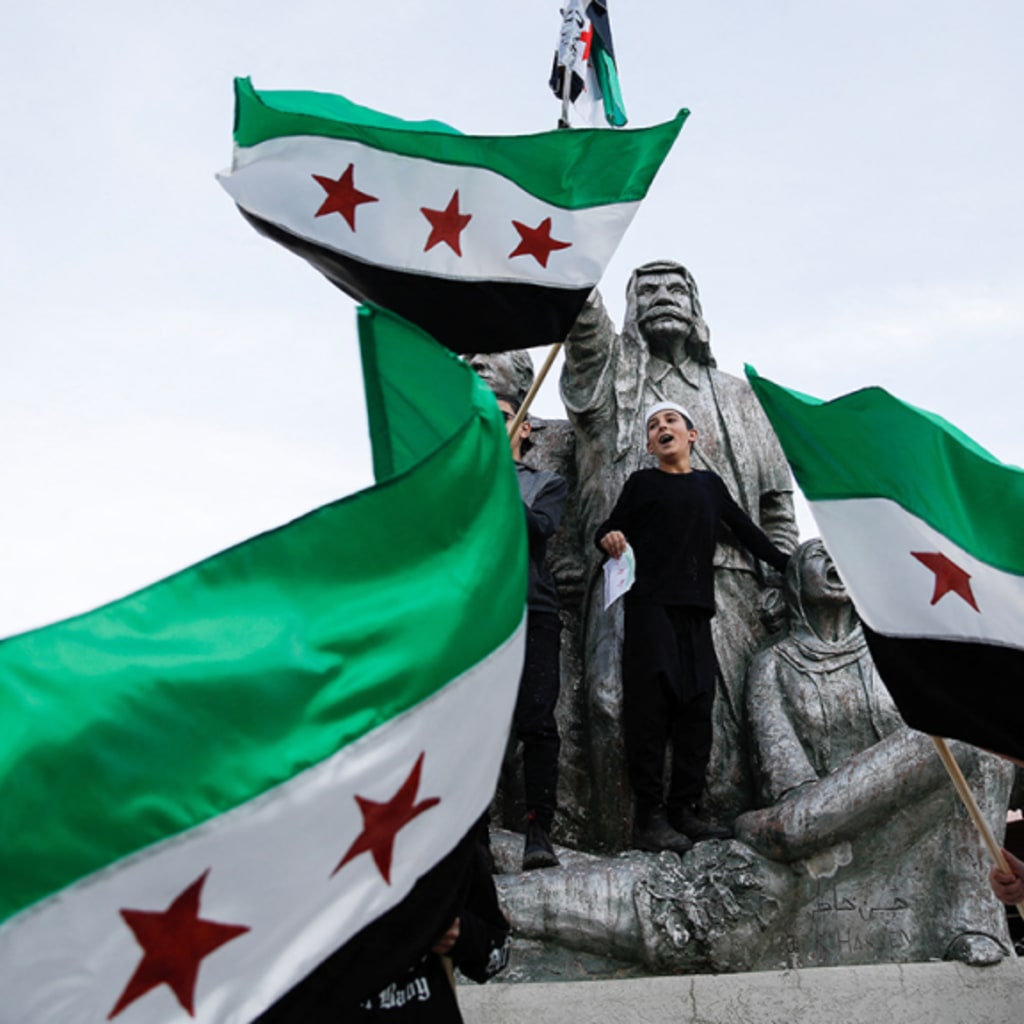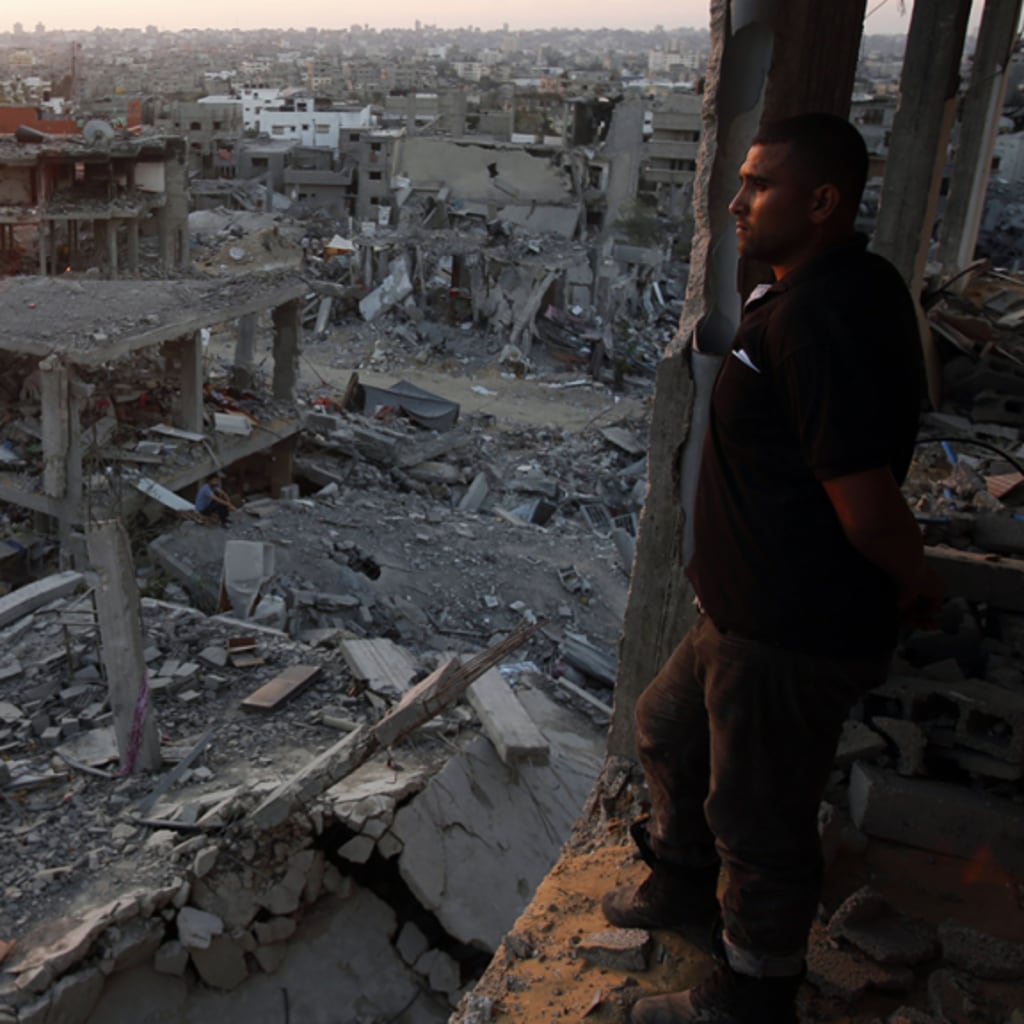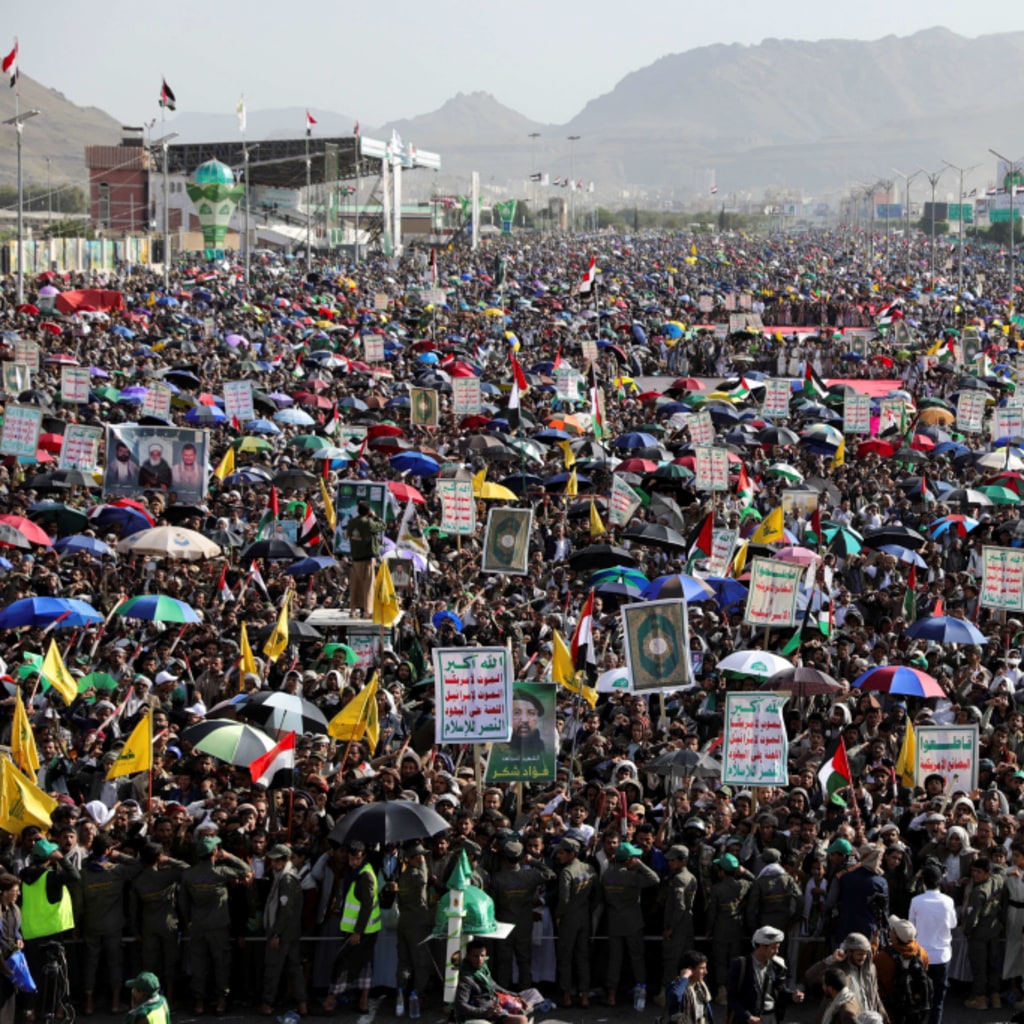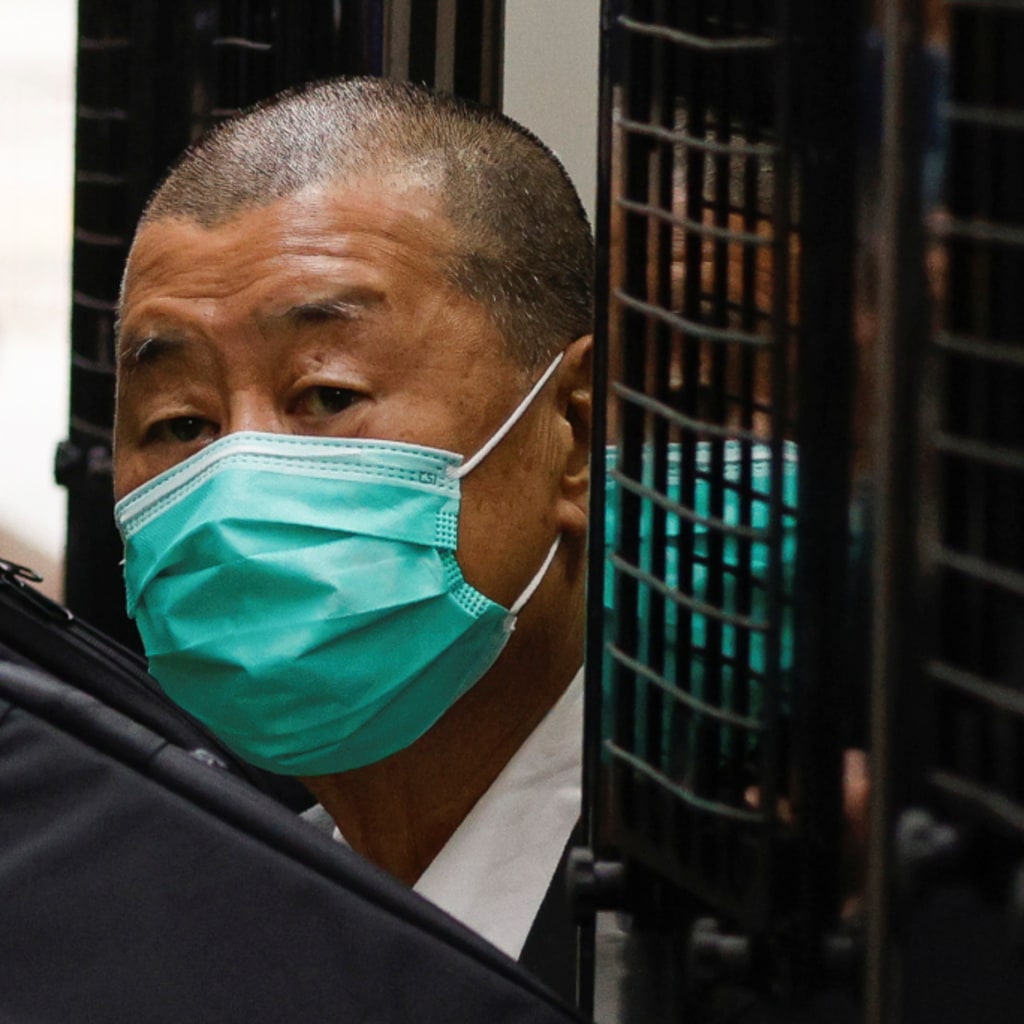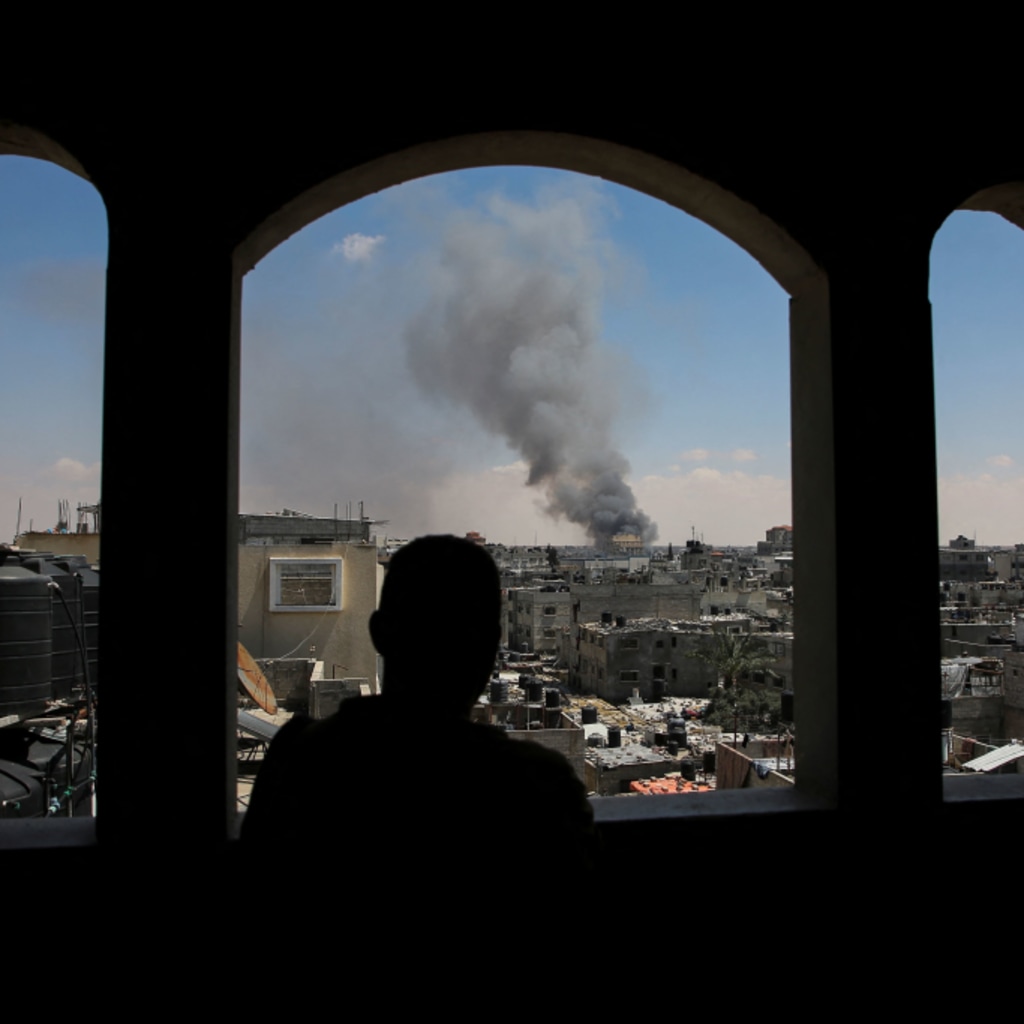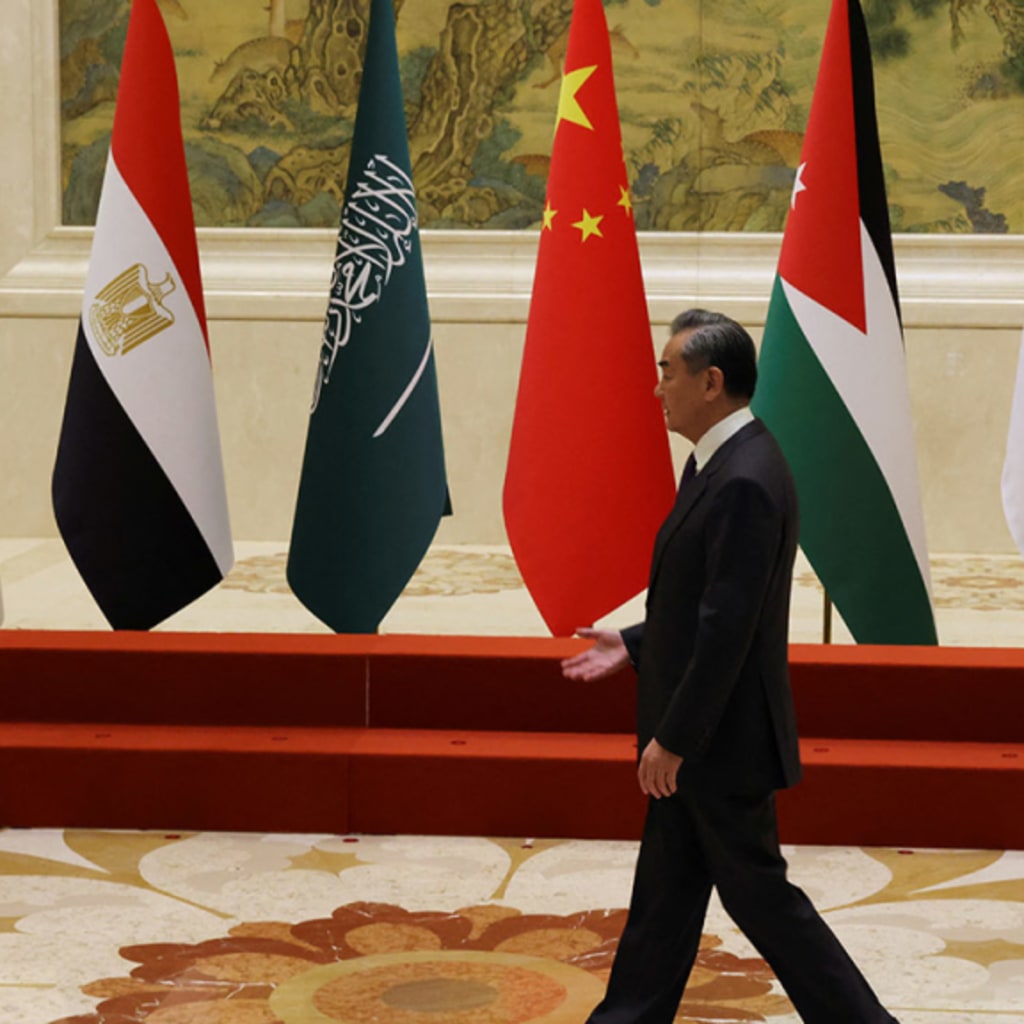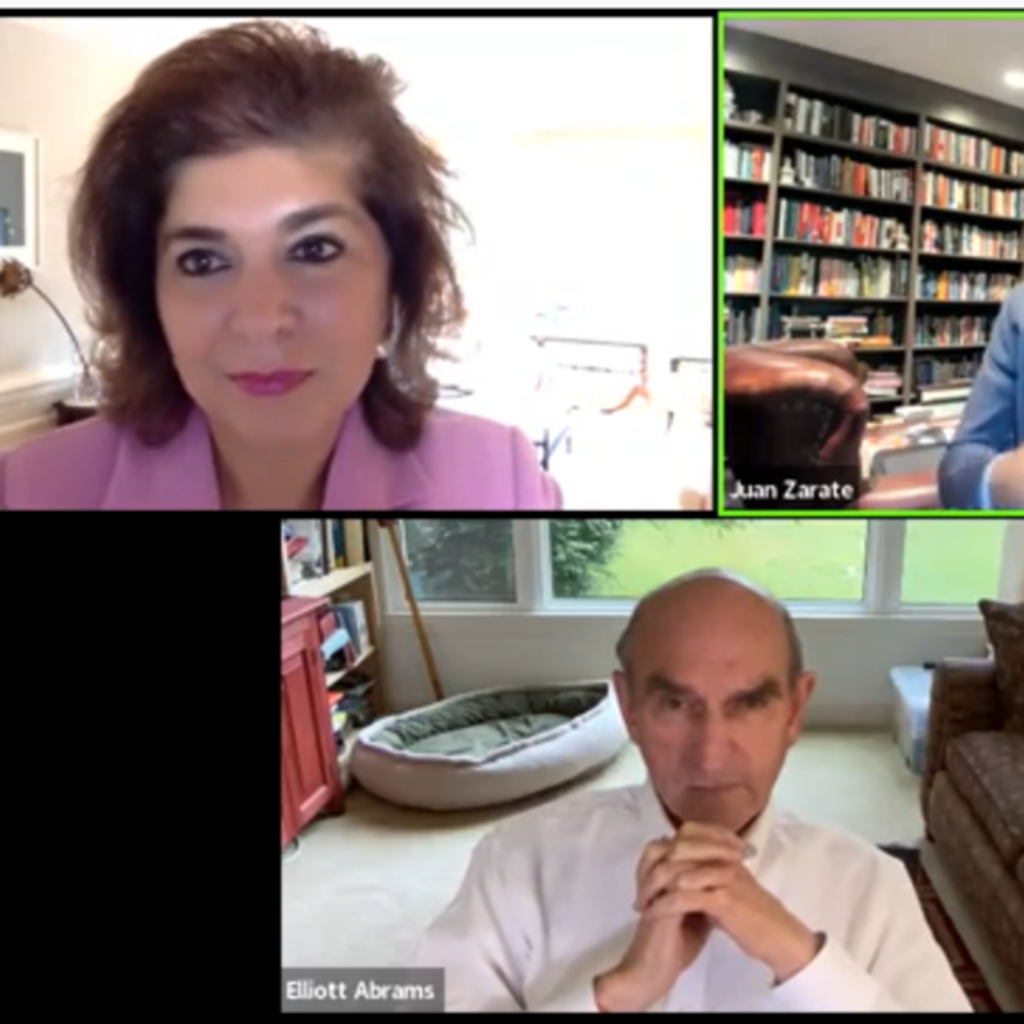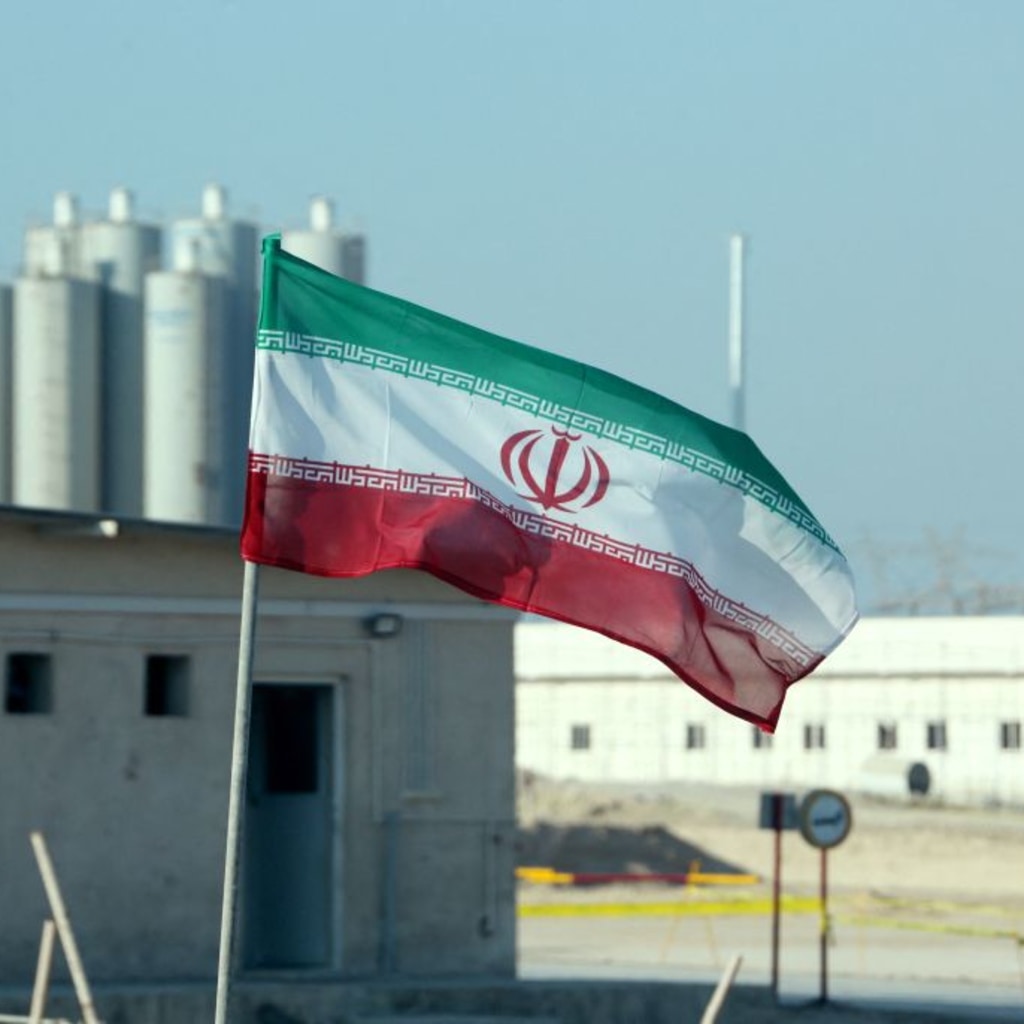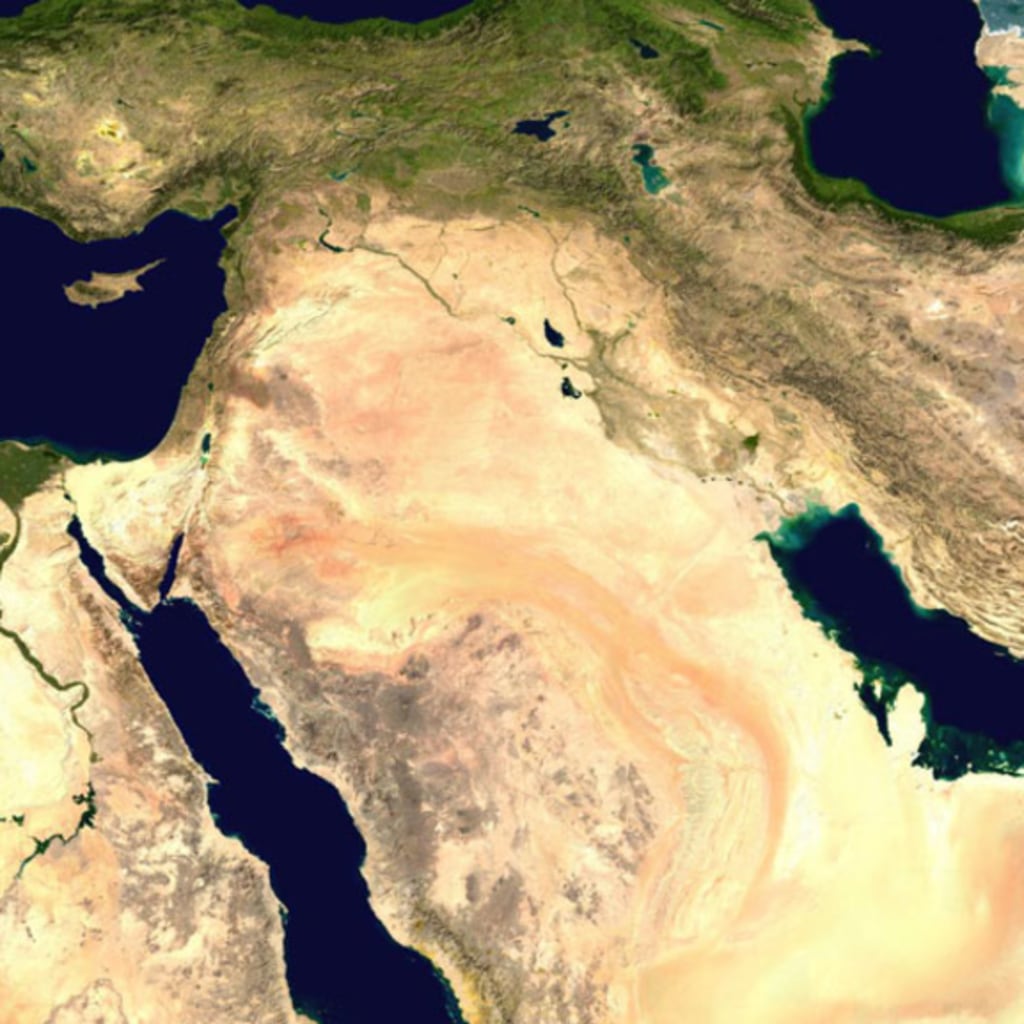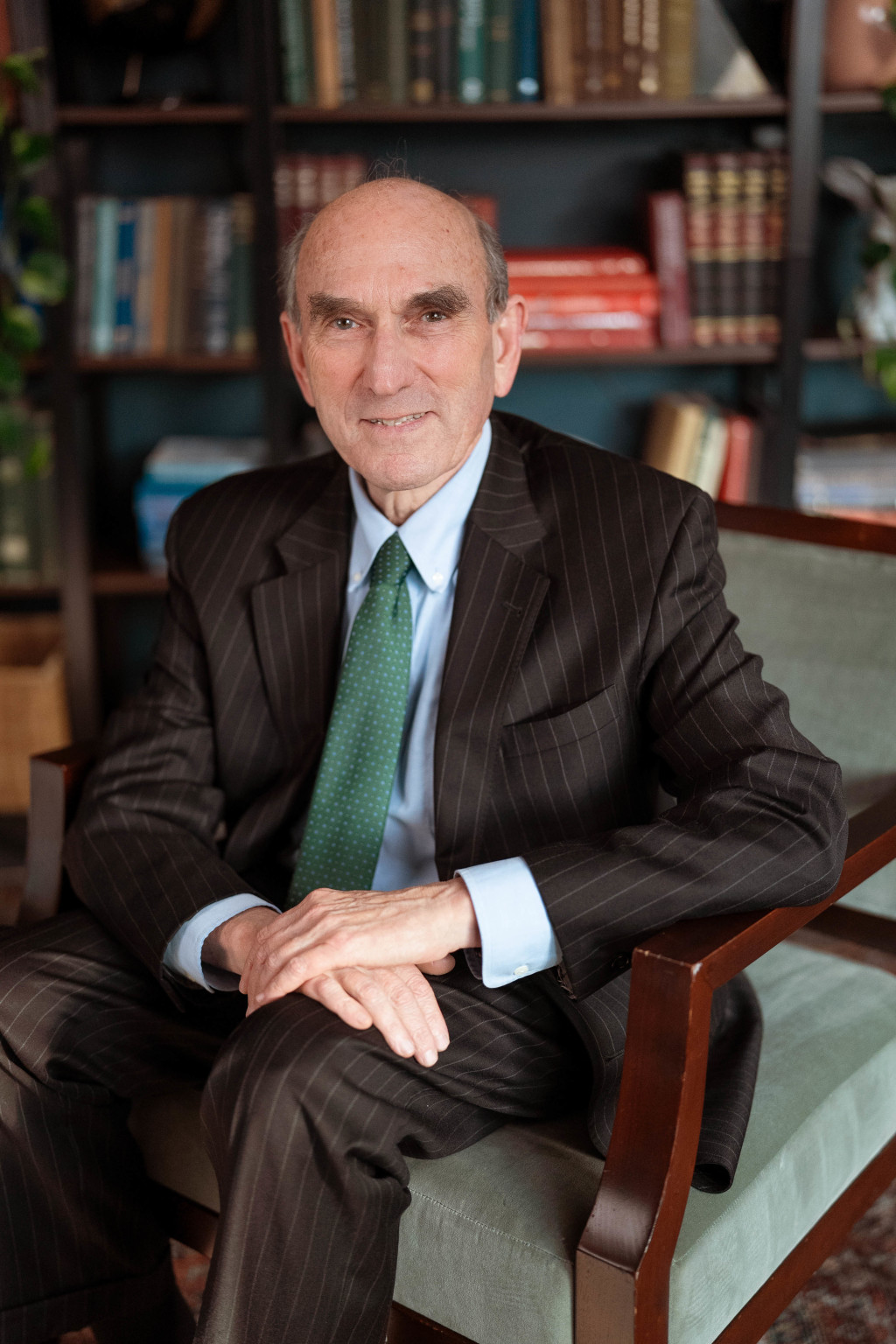
Elliott Abrams is senior fellow for Middle Eastern studies at the Council on Foreign Relations (CFR) in Washington, DC. He served as deputy assistant to the president and deputy national security advisor in the administration of President George W. Bush, where he supervised U.S. policy in the Middle East for the White House, and as Special Representative for Iran and Venezuela in the administration of Donald Trump.
Abrams was educated at Harvard College, the London School of Economics, and Harvard Law School. After serving on the staffs of Senators Henry M. Jackson and Daniel P. Moynihan, he was an assistant secretary of state in the Reagan administration and received the secretary of state’s Distinguished Service Award from Secretary George P. Shultz. In 2012, the Washington Institute for Near East Policy gave him its Scholar-Statesman Award.
Abrams was president of the Ethics and Public Policy Center in Washington, DC, from 1996 until joining the White House staff. He was a member of the U.S. Commission on International Religious Freedom from 1999 to 2001 and chairman of the commission in the latter year, and served a second term as a member of the Commission in 2012-2014. From 2009 to 2016, Abrams was a member of the U.S. Holocaust Memorial Council, which directs the activities of the U.S. Holocaust Memorial Museum. He was a member of the board of the National Endowment for Democracy from 2012 to 2023, and is a member of the Advisory Board established by the Middle East Partnership for Peace Act (MEPPA).
Abrams joined the Bush administration in June 2001 as special assistant to the president and senior director of the National Security Council for democracy, human rights, and international organizations. From December 2002 to February 2005, he served as special assistant to the president and senior director of the National Security Council for Near East and North African affairs. He served as deputy assistant to the president and deputy national security advisor for global democracy strategy from February 2005 to January 2009, and in that capacity supervised both the Near East and North African affairs and the democracy, human rights, and international organizations directorates of the National Security Council.
Abrams rejoined the State Department in January 2019 as Special Representative for Venezuela, and in August 2020 took on the additional position of Special Representative for Iran. He left the Department in January 2021.
Abrams is the author of five books: Undue Process, Security and Sacrifice, Faith or Fear: How Jews Can Survive in a Christian America, Tested by Zion: The Bush Administration and the Israeli-Palestinian Conflict, and most recently Realism and Democracy: American Foreign Policy After the Arab Spring. He is the editor of three more, Close Calls: Intervention, Terrorism, Missile Defense and “Just War” Today; Honor Among Nations: Intangible Interests and Foreign Policy; and The Influence of Faith: Religious Groups and U.S. Foreign Policy.
He is fluent in French and Spanish.
Affiliations
- Jewish People Policy Institute, board member
- NGO Monitor, international advisory board
- Tikvah Fund, board chair
- Vandenberg Coalition, board chair
- Public Interest Fellowship, consultant
